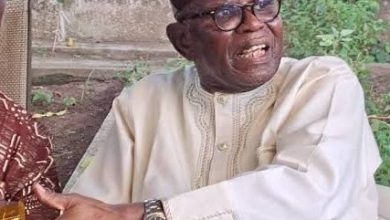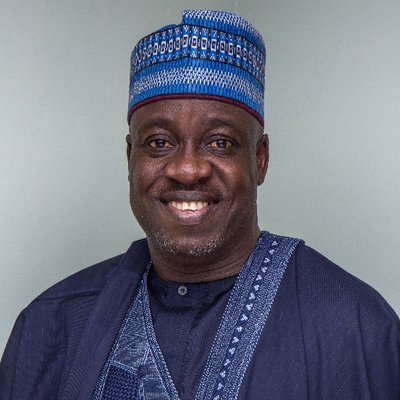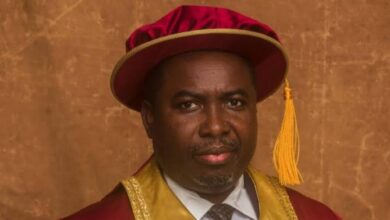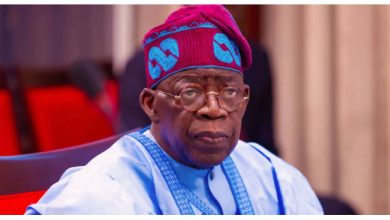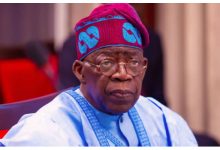RECAP: We can re-write Nigeria in Arabic, what matters is governance

By FREDRICK NWABUFO
Bigotry. We are big on it. To inflame passions and to smoke out the most reticent of Nigerians, flagellate the tempers of religion and ethnicity. Yes, then you will see the beast behind the mask. The mute compels speech and even the Nigerian PhD holder brawls when matters circle around his religion and ethnicity. Critical thinking is embargoed and the animal in man takes over.
Why do we lose our heads over religion? Some Nigerians become executioners when they assume their religion has been slighted, but when it comes to the bounden duty of holding government to account, they surrender their rights to fate.
What we should be most concerned about – which is governance – we take a tepid attitude to it. We cannot make progress when our capacity for outrage is gauged by religion and ethnicity.
Religion and ethnicity is a very vexed subject here, and the Buhari administration has stoked that furnace. Recently, the Central Bank of Nigeria was secured under a social media guillotine for reportedly putting Arabic inscriptions on naira notes – even though the inscriptions are Ajami (Arabic derivative of Hausa). The tired outrage over Islamisation rippled.
The epigraphs on the naira notes are Ajami, which is an Arabic derivative of Hausa. The words and meaning of the inscriptions are Hausa, but laced in Arabic script just like Swahili. The Nigerian constitution recognises English, Hausa, Igbo and Yoruba as languages for official performance. So, why the hoopla?
Well, the reason for the mass hysteria is largely ignorance and the government’s divisive propensity. The Buhari administration has lost public trust and it is seen as representing only a section of the country.
By its deliberate pursuit of selective appointments and provincial interest, the Buhari government has set itself up for suspicion and scorn. Even though the “Arabic epigraphs” have been on the naira notes long before the Buhari administration, that there is a hue and cry over the inscriptions now is because of the ethnically and religiously-charged atmosphere created by the current government. The inscriptions have been on the national currencies even when Nigeria used pounds and shillings. That citizens are railing against the lettering now, even going as far as filing a lawsuit, is symptomatic of general fear and distrust of the government.
And by granting Aliko Dangote and Abdul Samad Rabiu of BUA Group exclusive rights to export cement through the land borders, while several other businesses are excluded, how does the government want this interpreted? This here is the fount of hate speech.
The government’s nepotistic bent and knack for favouring cronies fuels ethnic tension which breaks into hateful exchanges. Naturally, actions like this do not sooth already frayed nerves. The government, by its blinkered disposition, is the biggest promoter of hate speech.
Reacting to the government’s decision, Atedo Peterside, foremost businessman and founder of Stanbic IBTC, said Nigeria’s economy is rigged in favour of well-connected people. He said: “Allowing legitimate exporters and importers to move their goods across the border should be a no-brainer. Why refuse everybody else and allow only one company (Dangote)? This is why some of us argue that the Nigerian economy is rigged in favour of a handful of well-connected persons.”
This is patently true. Again, hate speech is a symptom of the government’s divisiveness. When a government is blind to optics and insensitive to diversity, it creates room for division and suspicion. As I often say, if Nigerians were divided by an invisible line in the past; President Buhari came and built a towering wall separating them according to religion and ethnicity.
As a matter of fact, even if Nigeria is written in Arabic or Hebrew, but the government of the day is fair to all sections of the country and it is seen to be fair to all groups, Nigerians will not be taken up in conspiracy theories of Islamisation. This conspiracy theory derives its oxygen from the government’s failure at uniting the country.
Nigerians need to understand that religion and ethnicity are weapons of partitioning utilised by the beneficiaries of discord to keep the people at daggers drawn with one another and against the possibility of coming to a united purpose. A good example is the communiqué from the last Northern Governors Forum meeting where traditional leaders admitted to exploiting the sentiments of “religion and ethnicity” in prevailing on their subjects not to join the #EndSARS protests – on an important issue that affects them.
Brawling over religion and ethnicity only serves the interest of the common enemy of the people. The enemy is not Arabic, Hebrew or Latin. What matters to the enemy is to keep the status quo of bad governance, while goading you to hate your fellow victim of the rigged system.
*Fredrick Nwabufo is a writer and journalist. This piece by him was published on November 12, 2020.


